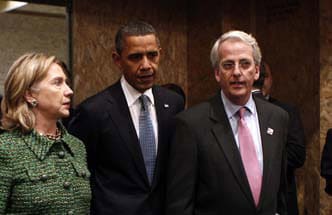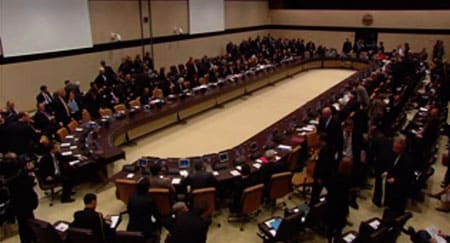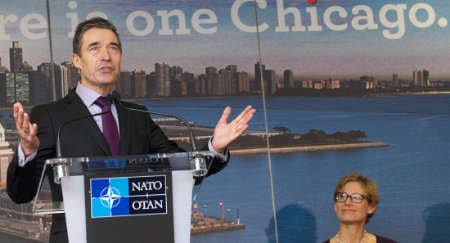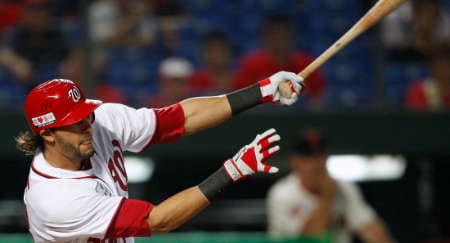Ivo Daalder was born in the Netherlands in 1960. Today he is the United States’ Ambassador to NATO. NATO Review asks him about his thoughts on today’s NATO, how important it is to the US and about his journey from his homeland through Washington and the White House which now takes him back to northern Europe.
US NATO Ambassador Ivo Daalder explains what he has learnt both professionally and personally since arriving at NATO.
How important is the timing of this Summit?
Remember our last summit in Lisbon was a summit on which NATO agreed to a new strategic concept that sort of set the course for the next ten years. It was about what this Alliance should be doing and how it should be doing it. A year and a half later, in Chicago, we'll come together and make sure that the direction we have set ourselves is the right direction. And, importantly, to make sure that we have the capabilities necessary to make sure that the challenges of the 21st century, the security challenges we all face together, that we can meet them. In Libya, we demonstrated that we could, but we also demonstrated that we have some gaps in the capabilities.
How significant is it that this summit is held back in the US?
President Obama believed when he came to office it was vital that the United States once again demonstrated that it believes its engagement with the world is on the basis of its partnerships and alliances with friends and allies around the world. He spent from day one his energy to rebuild alliances and partnerships. Being able to invite, towards the end of his first term, everyone from NATO and the many partners that are part of NATO, to Chicago, his hometown, is one way in which he is trying to make real the pledge that NATO remains the cornerstone of America's engagement with the world.
How important are these partnerships to NATO?
Partnerships really are becoming a central aspect of what this Alliance is all about. When ãyou think about it, partnerships represent the global security network, which has NATO at its core, at the hub of that network. Partnerships are a means to that end. And we not only have partnerships with countries that are close-by
- whether it's Switzerland or Sweden or Austria
- but increasingly we're finding that we need partnerships across the globe.
Partners play a key role in Afghanistan. Is there anything that could constitute a success for the NATO's operation there?
the fact that I spent 25 years in Europe and 25 years in the United States when I arrived at NATO helped me to understand both sides better
Well, remember we went into this country for one real reason, which was to make sure that Afghanistan would never again be a safe haven for terrorists. So, success is if we achieve a situation in which Afghanistan is sufficiently secure, sufficiently able to manage for itself, both politically, economically and of course in the security sphere. That is the course we're on. But we are seeing success in the sense that Afghans are stepping up to the responsibility of taking care of their own security, of governing their villages and provinces and districts and cities, and providing – because of that – a basis for prosperity for the future of this country. That's what we want for Afghanistan, and frankly, that's what Afghanistan wants for itself.
Did your previous positions prepare you for what you are doing now as US Ambassador to NATO?
I came with a full knowledge of what this organisation does and how it works. What I didn’t have, is the diplomatic background to make sure that you promote America’s interests in an Alliance in such a way that it is embraced generally by others. That’s what I have learned over the last three years. I really learned you need both: you need strategic vision, but then you also need diplomatic tact to translate that strategic vision into a set of practical steps that make this Alliance move forward.
You are a European who became an American and who now represents your new homeland. Has this unique perspective helped in NATO?
Undoubtedly, the fact that I spent 25 years in Europe and 25 years in the United States when I arrived at NATO helped me to understand both sides better. I do think I have a comparative advantage of having been able to live in, study, work on both sides of the Atlantic, to have, frankly, the Transatlantic Alliance be part of who I am and what it is that I do. When I arrived here I sat at a table with 28 other members and the Secretary General being one of four native Dutch speakers.
You’re back in Europe now. What do you miss most about Washington and the US?
Baseball, without any doubt. We are in the beginning of a new season. I love to go to baseball games and take the family and sit in the stands and eat hotdogs and drink beer and - more importantly - see them win. And now that the Washington Nationals are finally starting in a winning season, not being there is hard.




